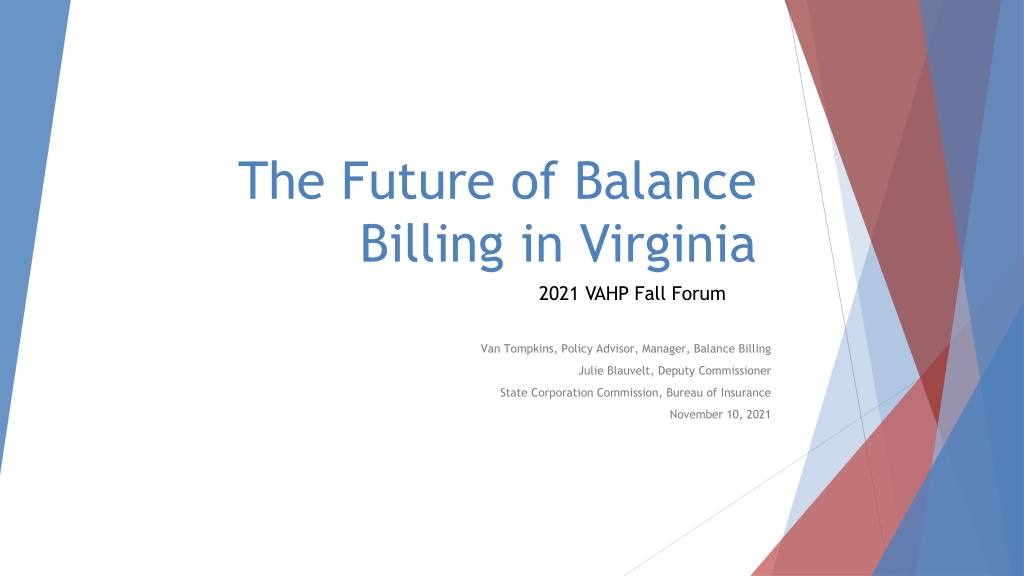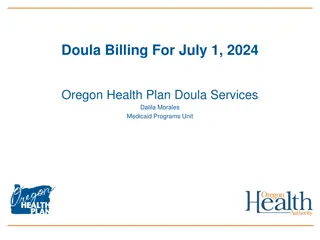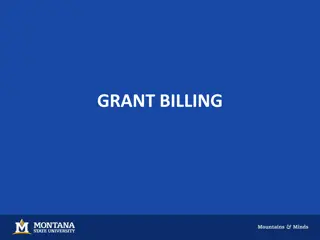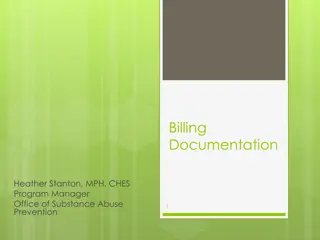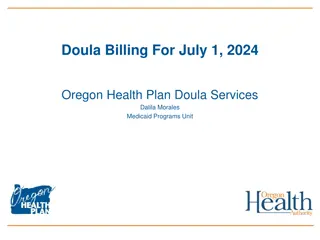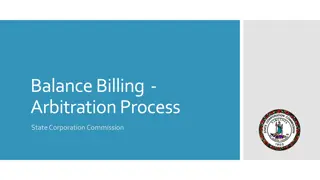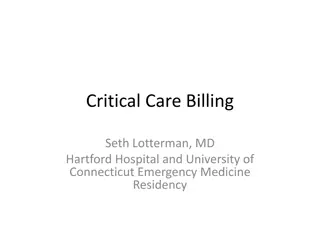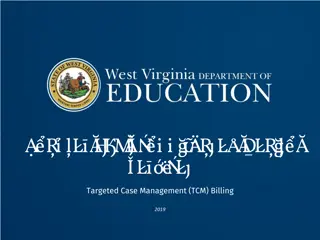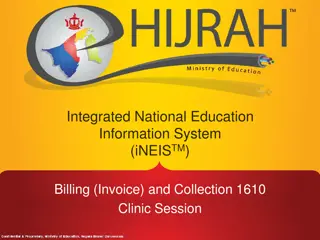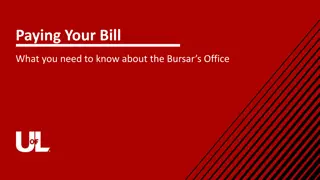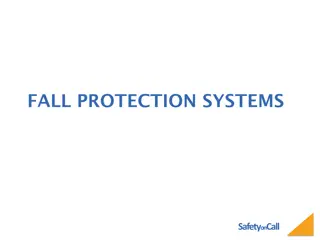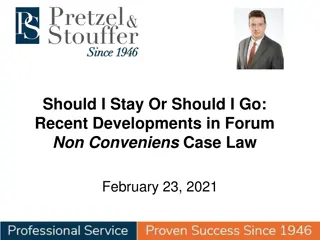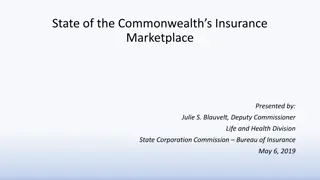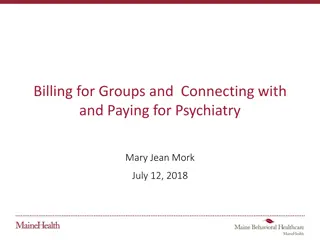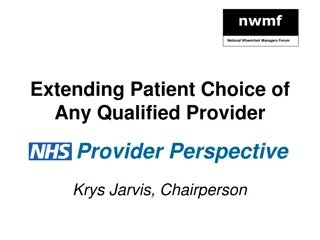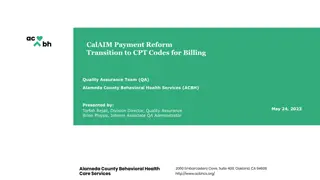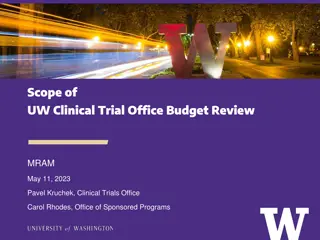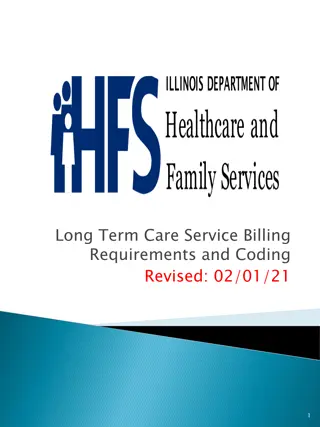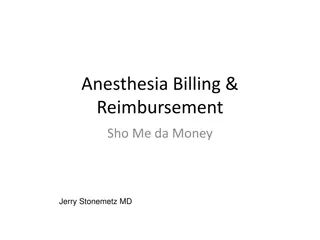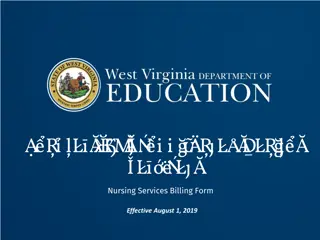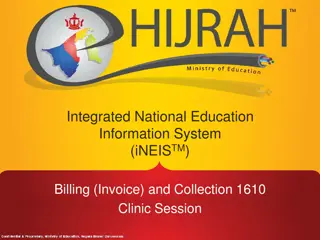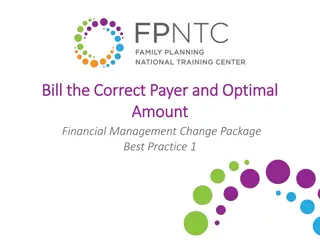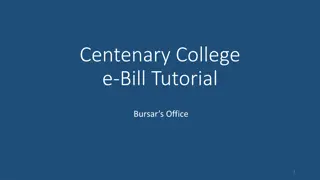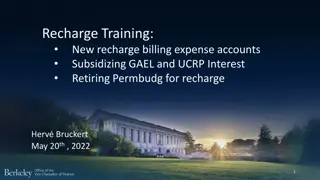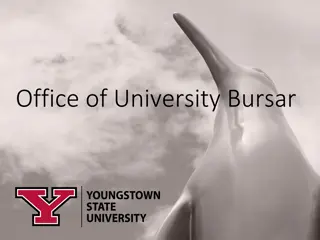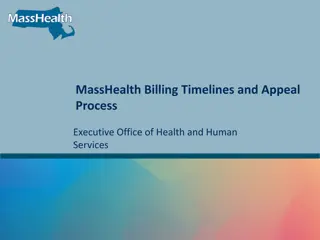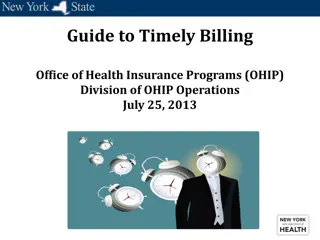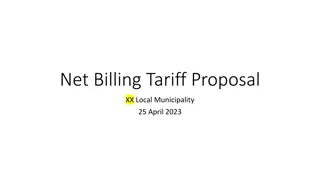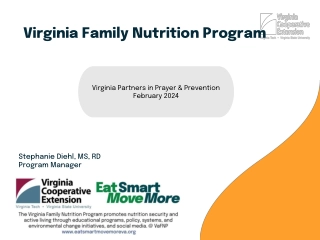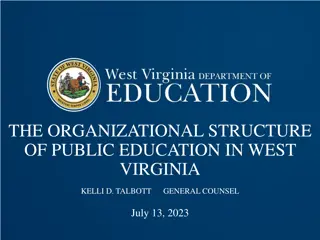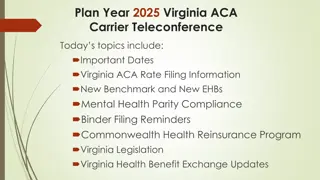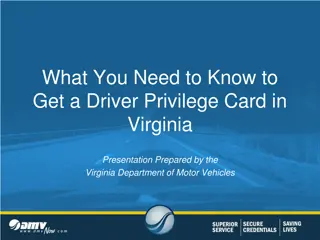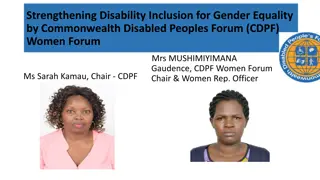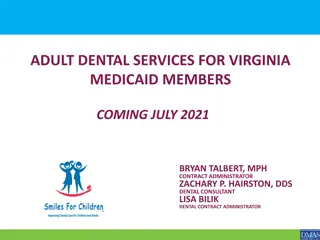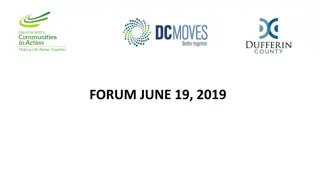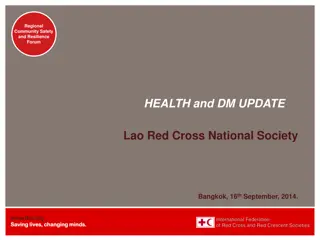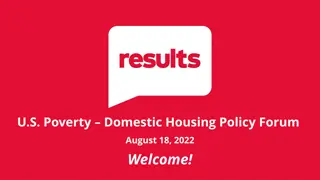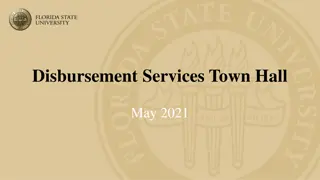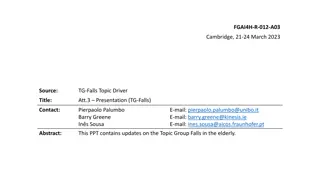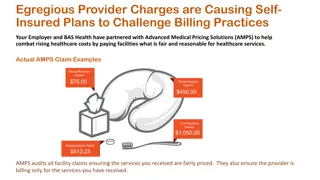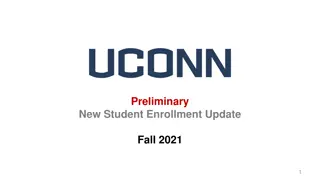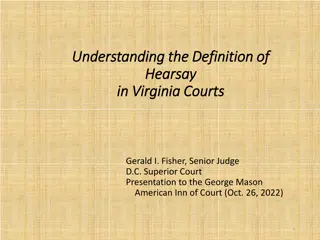Future of Balance Billing in Virginia: Insights from 2021 Fall Forum
Explore key points from the 2021 VAHP Fall Forum on balance billing in Virginia, including shared enforcement of the No Surprises Act, Virginia's approach, overall rules for enforcement, and more.
Download Presentation

Please find below an Image/Link to download the presentation.
The content on the website is provided AS IS for your information and personal use only. It may not be sold, licensed, or shared on other websites without obtaining consent from the author. Download presentation by click this link. If you encounter any issues during the download, it is possible that the publisher has removed the file from their server.
E N D
Presentation Transcript
The Future of Balance Billing in Virginia 2021 VAHP Fall Forum Van Tompkins, Policy Advisor, Manager, Balance Billing Julie Blauvelt, Deputy Commissioner State Corporation Commission, Bureau of Insurance November 10, 2021
Shared Enforcement of the No Surprises Act States are the primary enforcers; federal agencies enforce where a state fails to substantially enforce CMS is in discussions with states to learn the limits of state enforcement CMS intends to provide a letter outlining state versus federal enforcement will be a work in progress Virginia to enforce provisions of the NSA that are Virginia law Federal agencies enforce provisions that go beyond Virginia law
Virginia Shared Enforcement: Providers Bureau of Insurance shares enforcement of Virginia balance billing protections with Department of Health and Board of Medicine
Virginias Approach to the No Surprises Act Virginia law effective January 1, 2021 Virginia law is specified state law for circumstances regulated by Virginia law Plans regulated under Virginia law must comply with both Virginia law and federal requirements Different line items in one claim could be eligible for different arbitration/IDR processes All air ambulance authority will be federal enforcement
Overall Rules for Shared Enforcement When Virginia Can Enforce Virginia Balance Billing Protections Where: Services received from providers subject to Virginia law Who: Fully-insured managed care plans issued and delivered in Virginia, including grandfathered plans and short-term limited-duration plans that use a network State employee plan; Local government/school plans that opt-in Self-funded plans that opt-in regardless of location of the plan When Virginia Cannot Enforce Balance Billing Protections Services from a provider not subject to Virginia law (services received outside Virginia) Fully-insured plans issued outside Virginia, including grandfathered plans Local government/school plans that do not opt-in Self-funded plans that do not opt-in, including grandfathered plans Church plans Federal employees Uninsured or self-pay Emergency services in an independent freestanding emergency department, and some post-stabilization and observation services Air Ambulance services What services: Emergency services in a hospital Nonemergency surgical or ancillary services in a participating facility
Overview of Virginia vs. Federal Enforcement Federal NSA Provision What Virginia Plans to Enforce (assuming Who, What, Where falls under VA law) Federal Enforcement PHS Act Sec. 2719 Appeals Process, Section 110 of the No Surprises Act BOI will handle complaints and external review related to Virginia law compliance Federal agencies will handle all others PHS Act Sec. 2746. Disclosure of Agent Compensation to Enrollees of Individual Market Coverage, Section 202 of the CAA, 2021 Filed in rate filings, but defer to federal enforcement of public disclosure Federal agencies will enforce public disclosure* PHS Act Sec. 2799A-1 (a), (b), (d), (e) and (f). Preventing Surprise Medical Bills, Sections 102, 107, and 111 of the NSA: Limitations on Out-of-Pocket Costs/Prohibition on Balance Billing; Price Transparency (Information on ID cards, and Advance EOB) Member cost-share based on carrier s median in-network contracted rate; Provider payment is a commercially reasonable payment When not subject to Virginia law: Member cost-share based on Qualifying Payment Amount (carrier s median contracted rate); Provider payment based on federal QPA Federal agencies will enforce price transparency (ID cards and Advance EOB)* PHS Act Sec. 2799A-1(c). Independent Dispute Resolution (IDR) Process, Section 103 of the NSA Virginia will maintain arbitration process under Virginia law Federal agencies will administer IDR process for all others PHS Act Sec. 2799A-3. Continuity of Care, Section 113 of the NSA PHS Act Sec. 2799B-8. Continuity of Care, Section 113 of the NSA Virginia s requirements still apply Carriers must notify covered persons for provider terminations; Providers must accept payment of the most recent contracted rate Defer to federal enforcement *Delayed enforcement date
Overview of State vs. Federal Enforcement Cont d) Federal NSA Provision What Virginia Plans to Enforce (assuming Who, What, Where falls under VA law) Federal Enforcement PHS Act Sec. 2799A-4. Maintenance of Price Comparison Tool, Section 114 of the NSA Defer to federal enforcement Federal agencies will enforce* PHS Act Sec. 2799A-9. Increasing Transparency by Removing Gag Clauses on Price and Quality Information, Section 201 of the CAA, 2021 Defer to federal enforcement Federal agencies will enforce* PHS Act Sec. 2799B-2. Balance Billing in Cases of Non-Emergency Services Performed by Nonparticipating Providers at Certain Participating Facilities, Section 104 of the NSA No person shall waive, be required to waive or require another person to waive balance billing protections under Virginia law Federal agencies will enforce notice and consent for situations not covered under Virginia law PHS Act Sec. 2799B-3. Provider Requirements with Respect to Disclosure on Patient Protections against Balance Billing, Section 104 of the NSA Virginia will provide a Consumer Notice to be used for cases subject to Virginia and federal law Other consumer notice must be provided for cases not subject to Virginia law PHS Act Sec. 2799B-6. Provision of Good Faith Estimate Upon Request and for Scheduled Appointments, Section 112 of the NSA Defer to federal enforcement Federal agencies will enforce* PHS Act Sec. 2799B-7. Patient-Provider Dispute Resolution, Section 112 of the NSA Defer to federal enforcement Federal agencies will administer *Delayed enforcement date
Payment/Arbitration/IDR Process Comparison Provision/Process Virginia Federal Out-of-Network Provider Payment/Basis for Enrollee Cost- sharing Commercially Reasonable Amount Initial provider payment and cost-sharing based on carrier s median in-network rate; Final provider payment determined through negotiation and arbitration Qualifying Payment Amount Initial provider payment and cost-sharing based on carrier s median contracted rate; Final provider payment determined through negotiation and arbitration Good Faith Negotiation Provider has 30 days following payment to dispute; negotiation period is what s left of the 30 days Party has 30 business days after initial payment to send an open negotiation notice. This begins another 30 business day negotiation process. Arbitrator Fee No Admin Fee; Both parties split arbitration fee (varies, currently $200-$4,750 single; $400-$5,250 batched) $50 Admin fee by both parties; non-prevailing party pays ($200-$500 single cases) ($268 - $670 batched) Bundling Rules Identical Health Care Professional and Carrier; similar service; within 2 months Same plan/issuer; same provider/provider group (same Tax ID or NPI); same code (with modifiers); within 30 business days Arbitrator Decision Must consider evidence and methodology submitted by the parties; patient characteristics and case complexity May consider other info submitted, including the Virginia data set Begins with QPA, can only deviate from this if info clearly shows the value is materially different from QPA. Must not consider UCR, billed charges or rates payable by a public payor Limits on Arbitration/IDR Requests Carrier must not submit with such frequency as to constitute a general business practice After an IDR decision, the party that submitted the IDR request may not submit another request involving the same other party for the same service code for 90 days.
Virginia Consumer Protections Above Federal Law Additional protections related to in-network facilities Virginia law may encompass more types of facilities Protections must not be waived Federal process allows for notice and consent of certain protections No federal IDR process is initiated if notice and consent were obtained Protections apply to STLD plans with a network
Arbitration Statistics A total of 727 arbitration requests were received through October 31, 2021, of which 660 requests were accepted as eligible 111 Arbitrators participate 391 self-funded groups have opted-in
